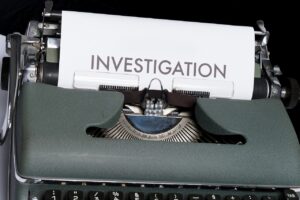Prosecutors are attorneys who have the role of representing the government in criminal cases. In Massachusetts, chief prosecutors are known as district attorneys (D.A.s), while each district attorney will also have assistant district attorneys working in his or her office.
In Massachusetts, there are 11 district attorneys, who are elected by voters. These D.A.s have a support staff of some 785 other assistant district attorneys and 260 victim-witness advocates.
The main responsibilities of a prosecutor are to:
- prepare and present the case against a defendant (an individual, business or organization) who has been accused of breaking a law;
- take charge of directing any additional criminal investigations relevant to the case;
- give advice and recommendations on the sentencing of those defendants who have been convicted.
What do prosecutors in Massachusetts actually do?
The answer is – a lot! Much of the daily work of district and superior court prosecutors is in court. These are typical tasks that prosecutors might handle on an everyday basis:
- assess new cases as they arise;
- talk to police officers and victims of crime;
- attend bail hearings and make recommendations to court;
- attend pre-trial conferences;
- search for witnesses with the help of the police and, in some cases, private investigators;
- prepare witnesses for trial;
- take part in plea negotiations and plea bargains;
- search for evidence that supports the prosecution’s case against an alleged offender;
- complete a trial in which a jury has been waived;
- take testimony in evidentiary motions, i.e. those that require the presentation of evidence in support of the charge;
- argue non-evidentiary motions, i.e. those that do not require evidence, only legal argument.
Criminal cases that prosecutors pursue
Prosecutors are involved in prosecuting all sorts of crimes, from the most minor of misdemeanors to the most serious felonies. Attorneys working as assistant district attorneys are normally assigned to local courts, such as district and municipal courts where they handle misdemeanors like simple assault, minor drug possession and OUI (operating under the influence) in addition to felonies that could result in a maximum of five years in prison such as larceny (more than $250), stalking and assault and battery with a dangerous weapon.
When these attorneys have gained more experience, they may be promoted to act as prosecutors in the superior court. These trial attorneys prosecute the more serious felonies such as drug or firearms trafficking, rape, aggravated assault and homicide.
Essential characteristics of a prosecutor in Massachusetts
All graduates of a law degree (Juris Doctorate degree) may apply to become an assistant district attorney in Massachusetts. The state gives preference to law graduates who are already members of the Massachusetts Bar and those who have SJC Rule 3:03 certification. Applicants go through a thorough background check before being employed.
Characteristics that are considered essential for a prosecutor include:
- familiarity with the Massachusetts Rules of Professional Conduct;
- participation in training which is relevant to the functions of a prosecutor and the requirements of the State Ethics Commission;
- familiarity with the Office Personnel Policies, such as the appropriate use of information technology, sexual harassment in the office, confidentiality and adherence to a drug free workplace environment;
- completion of tasks as a prosecutor in an accurate, efficient and timely manner;
- employ a respectful, professional relationship with office staff, law enforcement officers and the general public.
In addition, prosecutors are assumed to have the following characteristics:
- able to handle pressure well and show confidence;
- have sound judgment;
- have a well developed ability for public speaking;
- show interest in litigation;
- acquire knowledge of socio-economic factors that can contribute to crime and prosecution;
- have high moral character;
- have a sincere interest in community service, law enforcement, justice and community service.
The special responsibilities of a prosecutor and Rule 3.8
Prosecutors in Massachusetts are expected to act within certain specific guidelines laid down in Rule 3.8 which relate to professional conduct. Some of these guidelines are outlined below.
- Prosecutors must not continue with pursuing the prosecution of a case in which there is no probable cause to support the contention that a charge exists. They must also not threaten to continue to pursue the prosecution of a case where probable cause to support a charge does not exist, or is likely to be found following further investigation.
- Prosecutors must make an effort to ensure that the accused has been advised of their right to obtain counsel and has been given reasonable opportunity to obtain counsel.
- Prosecutors must not attempt to obtain a waiver of pre-trial rights from an accused who does not have counsel, unless a court has already obtained from the accused such a waiver.
- Prosecutors must provide the defense with any evidence that may reduce the severity of the charge or negate it.
- Prosecutors must not make extrajudicial comments that could cause increase public condemnation of the accused and discourage any staff at the prosecutor’s office or police from making such an extrajudicial comment.
- Prosecutors must not attempt to avoid pursuing evidence that may reduce the likelihood of a conviction being obtained.
- Prosecutors must advise within a reasonable time period the appropriate court and/or the chief prosecutor of new, credible and material evidence that a conviction may not have been justified.
- Prosecutors have a responsibility to advise the defendant of any new such evidence unless directed otherwise by a court.
For more information, visit our website Mucci Legal or contact us for a free initial legal consultation today.


